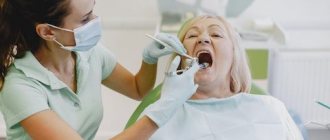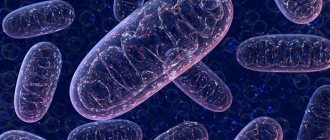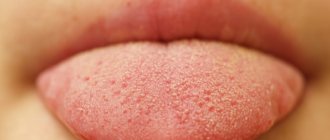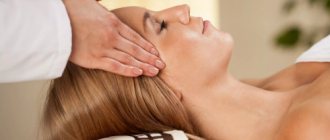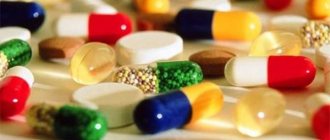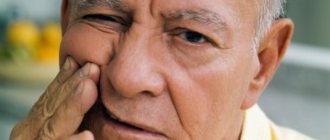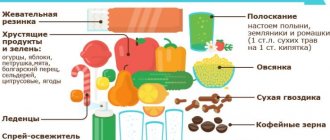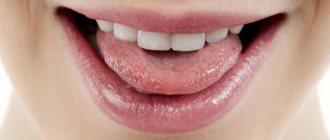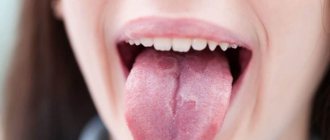Functions of the sky and structural features
The palate is a vault that separates the oral cavity from the nasopharynx. The structure of the palate consists of two sections - hard and soft. This organ performs an important function - it prevents food from entering the nasopharynx from the oral cavity.
In addition, receptors on the surface of the palate are associated with the larynx and take part in articulation and influence the timbre of the voice and the pitch of sounds. Thus, the inflammatory process of the upper palate disrupts all the functions of this important organ, and therefore requires mandatory treatment.
Causes
From the name of the disease it is clear that the main risk factor is drinking alcohol. Exposure to ethanol provokes an increased secretion of hydrochloric acid, which disrupts the normal functioning of the mucous membrane, and its protective abilities are reduced, and the rate of tissue restoration decreases. Alcohol, especially strong alcohol (vodka, cognac) forms changes on the lining of the stomach that look like burns. Also, in combination with alcoholism, the following factors provoke inflammation of the mucous membrane:
- Stress, psycho-emotional stress;
- Smoking;
- Disturbed diet, snacking on the go, abuse of salty and spicy foods. Such food is used as a snack when drinking alcohol.
- Medicines – NSAIDs (acetylsalicylic acid), glucocorticoids;
- Constant fatigue, overwork;
- Harmful factors in production;
- Excess weight;
- Heredity.
Elements of alcohol-containing products have a chemical irritant effect. Directly and indirectly affects the digestive organs. A mediocre effect is that ethanol has a detrimental effect on the central nervous system. As a result, the brain loses the function of regulating the protective mechanisms of intestinal tissue.
Why does inflammation occur?
The muscular structure of the palate is covered on top with a mucous membrane, which is subject to the development of an inflammatory process. Inflammation often occurs under the influence of such factors:
- burn of the mucous membrane as a result of consuming excessively hot food and drinks;
- damage to the palate due to dental diseases - periodontitis, stomatitis, caries, pulpitis;
- disruption of the oral environment due to the action of metals - when wearing braces or installing crowns;
- smoking;
- allergic reactions to medications;
- neurological diseases affecting the joints of the upper or lower jaw;
- osteomyelitis - an infectious lesion of the bone tissue of the jaw;
- malignant neoplasms;
- infectious diseases of the upper respiratory tract - sore throat, tonsillitis, pharyngitis, rhinitis.
The development of the inflammatory process of the palate may be facilitated by some of these causes in their entirety or separately from each other.
It hurts to open your mouth after dental treatment
It happens that after dental treatment we do not receive the desired relief due to complications that have developed as a result of dental procedures.
Causes
There may be several reasons why it is painful for a patient to open his mouth after dental treatment:
- consequences of wearing braces
: after each correction, the doctor changes the pressure exerted by the arches on the dentition. It takes time to get used to it. However, if after a week the discomfort does not go away, you should additionally consult a doctor; - root canal filling
: moderate pain may be felt for several days, and this is considered normal. But if the pain does not go away longer and even worsens, it is necessary to take an x-ray and consult a doctor; - neuralgic complications
: can occur when a nerve is pinched or inflamed as a result of anesthesia, tooth extraction, incorrectly performed endodontic treatment, etc. A characteristic difference is that the pain manifests itself even at rest and tends to periodically intensify. It not only becomes painful for a person to open his mouth after dental treatment, but also absolutely everything in general. This kind of pain cannot be tolerated. The sooner the patient receives medical help, the better the treatment prognosis; - tissue injury during tooth extraction
. Extraction of a dental unit is considered a full-fledged operation, during which the surrounding tissues, the ligamentous apparatus that holds the dental unit in the socket, and the vessels that supply it are damaged. Often such manipulations are accompanied by the formation of large edema, and suppuration may develop. All this leads to the appearance of severe pain, which makes it painful not only to chew, but also to simply open your mouth. Therefore, if the pain increases over several days, you should additionally consult with your dentist; - dysfunction of the temporomandibular joint
can develop as a result of incorrectly performed dental prosthetics or overestimation of the filling over the bite; - Trismus of the jaw
(spasm of the masticatory muscles) can also be triggered by dental treatment.
Thus, moderate discomfort for several days after dental procedures is normal. But if it hurts to open your mouth after dental treatment after 3-7 days, consult your doctor. Perhaps this is a consequence of complications.
Read more:
- Complications after dental treatment
- Perforation of the maxillary sinus
Signs and symptoms of inflammation of the palate
Depending on the causes of inflammation in the oral cavity, a person may experience the following unpleasant symptoms:
- A feeling of acute pain that makes it difficult to eat. Soon the pain increases, sometimes even swallowing becomes impossible.
- If the inflammation is caused by the action of a fungus, a white coating and erosion forms on the surface of the palate. The process is accompanied by an unpleasant putrid odor from the mouth.
- When the cause of inflammation is an infectious lesion - sore throat or tonsillitis, the palate becomes red and swollen.
- In case of acute inflammation, an increase in body temperature and fever is possible.
- If the cause is dental disease, the patient will be bothered by toothache.
- With cancer, the patient complains of aching pain in the palate.
Diet
Foods and diet affect the health of the digestive system. In acute cases, eating is not recommended for the first 2-3 days. Only drink plenty of warm mineral water without gas. Then they switch to kefir, liquid, semi-liquid porridges, vegetable soups, jelly, and low-fat dairy products. Avoid spices and carbonated drinks. Over time, they switch to a diet with less strictness.
During the period of remission, table number 2 is prescribed. This is a rational therapeutic diet for patients with intestinal pathologies. The main goal is to protect the mucous membrane, enrich the diet with protein, iron and vitamins. Limitations of products containing coarse fiber - whole grain cereals, bran, flour, flour products, nuts and legumes. The consumption of pure cow's milk is prohibited. Exclusion of spicy, salty, smoked, fried foods.
Before eating, food is prepared by boiling, steaming, stewing and baking. The products are crushed to reduce injuries to the digestive tract. Small meals up to 5 times and at least 1.5 liters of water per day.
How is inflammation of the palate treated?
How to treat inflammation on the roof of the mouth, a specialist will tell you after determining the diagnosis. The following therapy methods can be used:
- If the cause of inflammation is minor damage to the mucous membrane, rinsing with decoctions of medicinal herbs is usually sufficient. Decoctions and infusions based on calendula, sage and chamomile have an antiseptic and healing effect. The herbal decoction for rinsing should be used warm.
- When the palate is affected by a fungus, patients are prescribed topical agents. The most effective are the solution and gel “Chlorhexidine”, “Rotokan” or “Stomatofit”.
- In case of severe pain symptoms, regardless of the cause of inflammation, drugs of combined action are prescribed. “Cholisal-gel” and “Kalgel” have proven themselves well.
- If a purulent inflammatory process is detected in the oral cavity, the patient is prescribed antibiotics. The minimum course of treatment is usually 7 days, but there are also stronger drugs that only need to be taken for 3 days. Along with local agents, antibacterial drugs for internal use - Sumamed, Flemoxin Solutab - can be prescribed.
- The inflammatory process of the palate is easily treatable. The earlier therapy is carried out, the less likely it is to develop complications.
Diagnostics
To determine the etiology and therapeutic tactics for pain in the mouth, a comprehensive dental examination is carried out, and, if necessary, an examination of the ENT organs. A number of specialists are involved in diagnosing the causes of pain in the mouth: dental therapist, periodontist, otolaryngologist, allergist-immunologist, neurologist, oncologist, etc. Taking into account nosology, the list of recommended studies includes:
- X-ray diagnostics (OPTG, CT of the jaws, sialography);
- dental examination (visual and instrumental examination, determination of periodontal index);
- ENT diagnostics (pharyngoscopy);
- sonography (ultrasound of the salivary glands, tongue);
- allergy examination (allergy tests, study of individual allergens);
- laboratory tests (analysis of the biocenosis of the oral cavity using bacterial culture, PCR).
Prevention measures
Preventive measures come down to following simple rules:
- brush your teeth at least twice a day; - use mouth rinses every time after meals; - Avoid eating excessively hot food; — enrich the diet with vitamins and microelements to increase local immunity.
Elimination of stressful situations, a balanced diet, regular visits to the dentist and examination of the body - all these actions are reliable prevention of the development of inflammatory processes in the oral cavity.
How to treat inflammation of the palate depends on the causes of the development of the inflammatory process and its symptoms. To determine an accurate diagnosis, you should visit the dentist's office.
This article is for informational purposes only, please consult your doctor for details!
How to treat?
Before choosing a course of treatment for stomatitis, the specialist finds out where this pathology came from in this case. To save a patient, for example, from catarrhal stomatitis, tartar is removed, teeth are treated and filled. To relieve him of ulcerative stomatitis, the doctor conducts a thorough examination of the body for problems with the blood, gastrointestinal tract, heart and blood vessels. And with aphthous stomatitis, the sick person is examined for allergies and rheumatism.
The course of therapy depends on the nature of the pathology
Along with treating the disease, the specialist prescribes local therapy, which means rinsing the mouth with chlorhexidine - 0.05% or 1% solution. The following drugs are also used when rinsing:
- aminocaproic acid;
- herbal decoctions;
- methylene blue.
A gentle diet will help speed up treatment.
Here are the foods to avoid:
- spicy;
- roast;
- rough food.
Here are some things you should increase your consumption of:
- porridge;
- pureed soups;
- vitamins (special emphasis on A and C).
Important ! After eating, you should rinse your mouth thoroughly. First with clean warm water, then with medicine.
After eating you need to rinse your mouth
Treatment for stomatitis usually takes from five days to one and a half weeks. But if the disease is started, it will last longer, becoming more and more severe.
